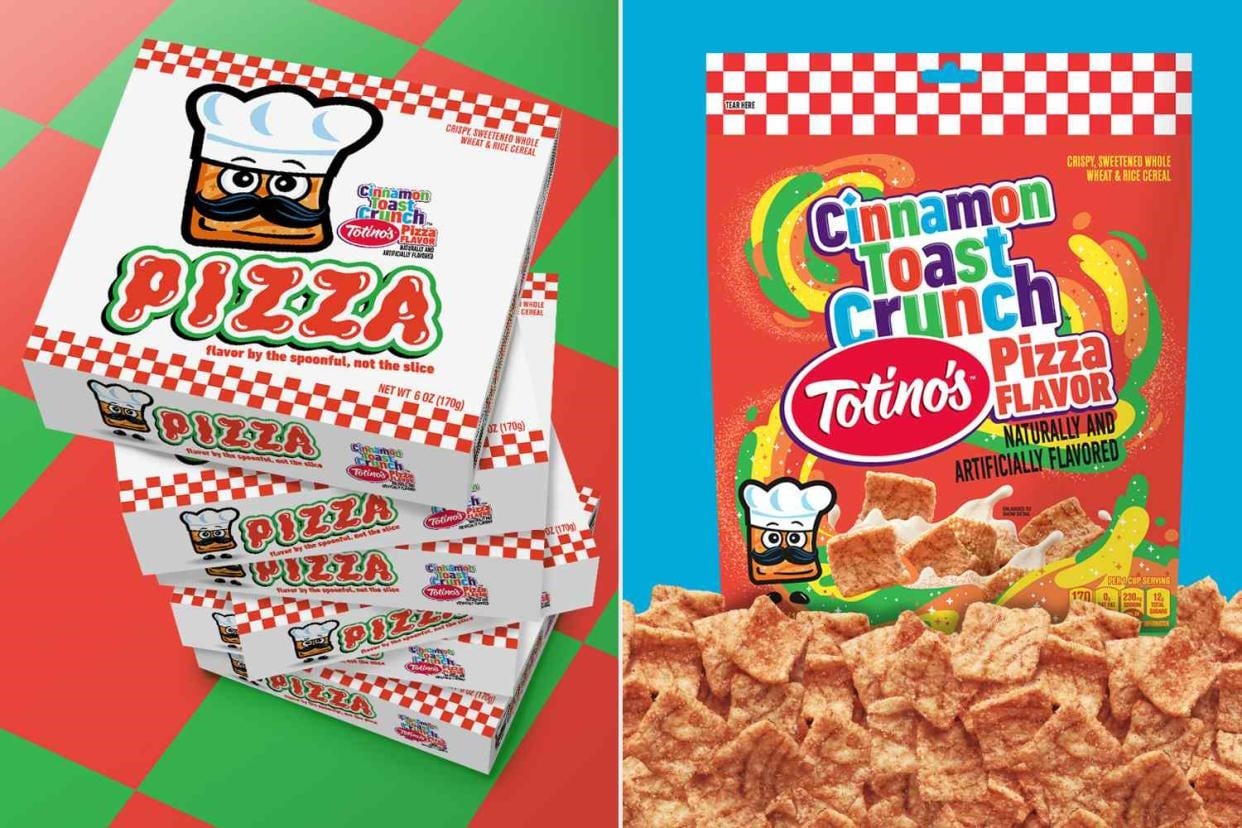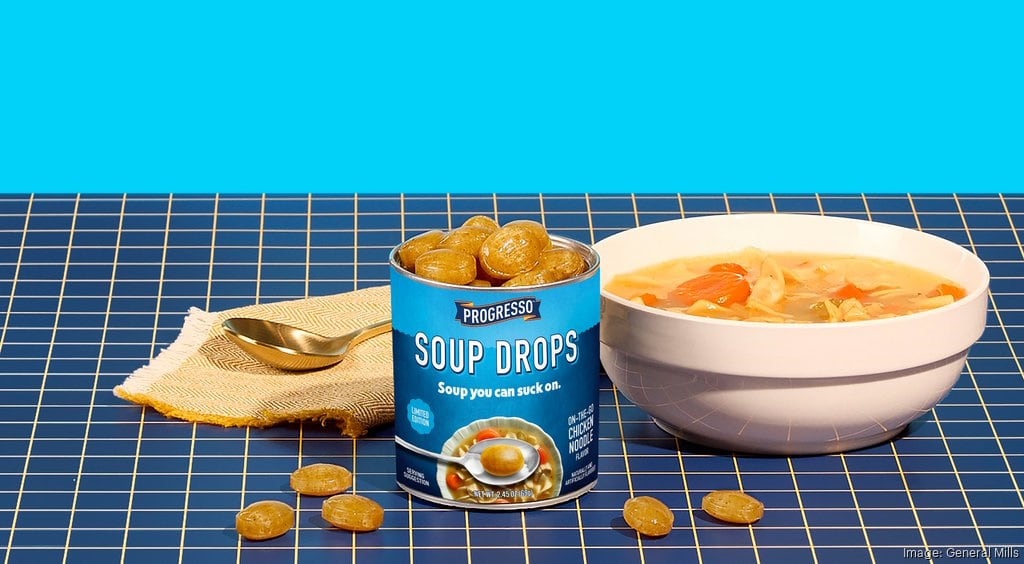General Mills has a remarkable history of introducing market-first products that have become household staples.
In the baking aisle, Bisquick – a pre-mixed baking blend launched in 1931 – revolutionised how home cooks made pancakes, biscuits, and other baked goods. Additionally, the Minneapolis-headquartered company introduced the tear strip in 1956, a now ubiquitous feature that makes opening packaging far more convenient. In 1975, it created the world’s first granola bar, a gamechanger for a growing cohort of consumers interested in healthier, on-the-go snacks.
Crazy Cow debuted in the late 1970s and turned milk into a flavoured beverage as the cereal dissolved, blending novelty with taste. Hidden Treasures, launched in 1993, featured sweetened corn cereal with a surprise inside – some pieces contained fruity fillings, while others were hollow, creating an element of breakfast suspense. While both products were short-lived, they remain fondly remembered by many.
Go-Gurt, launched in 1997, is another prime example of General Mills’ knack for innovation. This squeezable yogurt tube eliminated the need for spoons, targeting children and busy parents with its fun and portable design. It became a runaway success and remains a lunchbox staple decades later.
Fast forward to 2025, and General Mills’ latest innovations have ignited both curiosity and debate. The limited edition Cinnamon Toast Crunch Pizza-Flavored Cereal – created in collaboration with Totino’s – brings together two seemingly unrelated food categories: pizza and breakfast cereal. Designed to capture the savoury notes of Totino’s Pizza Rolls while retaining the signature Cinnadust of Cinnamon Toast Crunch, it’s packaged in a pizza box for added flair.

“This pizza-flavoured cereal is a match made in mashup heaven,” said General Mills in a statement. “Our goal was to surprise and delight our fans by pushing the boundaries of what a cereal can be.”
Equally unconventional are the company’s limited edition Progresso Soup Drops, hard candies that encapsulate the flavour of the classic Chicken Noodle Soup to celebrate National Soup Month (January). Marketed as ‘soup you can suck’, the drops are packaged in cans designed to mimic traditional Progresso can and even include an actual tin of soup.
“When you’re sick, nothing is more comforting than chicken noodle soup, so we thought, why limit it to a bowl?” said MC Comings, VP and business unit director for Progresso. “We transformed the beloved flavours of our chicken noodle soup into a fun, savoury candy, offering a new way to enjoy the taste you love, anytime and anywhere.”

Balancing innovation with practicality
In an age of information overload and saturated markets, capturing consumer attention requires more than just traditional marketing efforts – so it’s no surprise that General Mills is thinking outside the box. Products like pizza-flavoured cereal and soup candies generate buzz through social media chatter, headlines, and word of mouth. Limited edition launches, in particular, create a sense of urgency and exclusivity, enticing consumers to try them out.
Experimentation also serves as a form of marketing. Even if these products don’t become permanent fixtures, they keep the brand relevant and top-of-mind. They’re conversation starters that reinforce General Mills’ reputation as an innovator. Many of these innovations also play on nostalgia, catering to a sense of fun and curiosity that appeals to both younger and older audiences.
Unusual products may also serve as a low-risk way to test consumer interest in new flavour profiles or formats. Savoury breakfast flavours, for example, could pave the way for broader acceptance of non-traditional tastes in the category.
The market for ready-to-eat (RTE) savoury breakfast cereals remains largely unexplored. While current offerings aren’t explicitly marketed as savoury cereals, some brands are encouraging creative uses of their products in savoury recipes. For example, Nestlé promotes using its Fitness Original cereal as a crunchy base for a breakfast frittata, combining it with eggs, zucchini, peas, and fresh herbs. Similarly, King Arthur Baking Company suggests its Six-Grain Blend as the foundation for a Savory Breakfast Bowl, topped with sausage, cheddar, chives, spinach, avocado, and a jammy boiled egg.
While not entirely savoury - the pizza-flavoured cereal capitalises on the popularity of the savoury/sweet trend. It could also mark the beginning of a broader shift toward catering to more expansive breakfast preferences in the future.
However, while General Mills’ boldness is commendable, there is a fine line between creativity and absurdity. Some critics argue these products are mere gimmicks that detract from the brand’s legacy of practical, meaningful innovation. Others believe they’re creating a statement that enhances its position in the minds of consumers.
So, the question remains: are they truly addressing a consumer need, or are they merely leveraging shock value?
Lessons for producers

General Mills’ approach offers valuable insights for other food producers, both large and small. Innovation is essential, but it should align with the brand’s identity and values. And while experimentation is healthy, maintaining a balance between novelty and practicality ensures long-term success. For larger producers who can afford it, temporary launches are a great way to gauge consumer interest without committing to full-scale production. However, for smaller producers, such experiments could be a costly misstep.
Collaborations with other brands or influencers can lend credibility to unusual products. This is where brand licensing comes to the fore. Licensing partnerships not only reduce the risk associated with innovation but also provide instant familiarity that can drive trial and adoption. The Totino’s collaboration, for example, adds a layer of trust to the otherwise unconventional cereal.
Products with a strong narrative – whether nostalgic, whimsical, or adventurous – tend to resonate more with consumers. The story behind a product can be as important as the product itself. And while not every idea will work, each experiment provides valuable lessons. Discontinued products like Crazy Cow still contribute to General Mills’ reputation for trying new things to stay ahead of the curve.
For consumers, these quirky products offer a chance to explore the unexpected. For competitors, they serve as a reminder that boldness and ingenuity are essential in this crowded marketplace. Whether these latest creations are a step too far or a stroke of genius, they underscore the importance of staying curious, daring, and unafraid to challenge convention.


